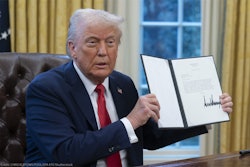When Congress voted in December 2020 to restore Pell Grants for incarcerated Americans after a 26-year ban, advocates hailed the move as an opportunity for 760,000 people in prison to achieve a better life through education. But now, as the July start date approaches, experts are warning that prison-imposed restrictions can prevent this expansion of Pell from reaching its full potential.
 Dr. Deborah Appleman, the Hollis L. Caswell professor and chair of educational studies at Carleton College
Dr. Deborah Appleman, the Hollis L. Caswell professor and chair of educational studies at Carleton College
“In the prisons where I work, they’re limited to no more than 10 books total,” she said. “They’re always having to make these heartbreaking choices about which books they’re going to get [and which] they’re going to give away.”
Faculty are also restricted in the number of materials that they can bring into prisons, as well as what type. Appleman, who often uses video in her teaching, was prevented from bringing discs into a prison because officials said that they could be used to smuggle in drugs.
Incarcerated students often don’t have much chance to use essential educational tools that people on the outside take for granted.
“Computer access is really atrocious,” said Appleman.
 Demetrius James, program manager at the Bard Prison Initiative and a former incarcerated studentChina Jorrin used with permission from the Bard Prison Initiative
Demetrius James, program manager at the Bard Prison Initiative and a former incarcerated studentChina Jorrin used with permission from the Bard Prison Initiative
Once, when a fellow inmate wrote a personal letter on a computer that was supposed to be used only for schoolwork, all students were prevented from using computers for several months.
“People had to handwrite their papers,” said James.
James was ultimately able to get $300 from family members to buy a typewriter in order to do his work. He also encountered challenges with his senior project, a 60–80-page paper on the history of the urban novel. James found that his attempts to get the novels were often restricted because they contained violent or sexual content. One administrator, he said, would not allow material unless it was appropriate for a 12-year-old.
“It was hard for you to concentrate and dig deep in the research that you were most passionate about,” he said.
Additionally, according to James, prison rules forced inmates to choose whether to participate in higher education or to have a job. This made it very hard for inmates without much financial support to choose to go to school.
“I really can’t even speak on the logic behind it,” said James.
Sometimes educational programs can feel like a low priority, derailed by clerical errors and staffing issues. Appleman spoke of a time when an instructor who had been teaching a class for 14 weeks was turned away because of a paperwork mistake, and another time when classes were cancelled because a correctional staff member wasn’t available to check teachers in.
According to Appleman, many of the restrictions that interfere with prison education programs come from a view of the incarcerated as perpetually on the verge of violence.
“If you believe that they’re there to try to become better human beings, to try to get a second shot at life, then some of these restrictions may seem ridiculous,” she said. “I don’t want to be a naïve bleeding heart. I get that there are people who did bad things. But that doesn’t mean that every day should bring new limits and new punishments.”
She believes that, for the expansion of Pell to be as effective as possible, the restrictions should be re-thought.
“We need to use the reasonable person standard,” she said. “Educational materials in and of themselves are not necessarily dangerous. There’s no reason why newspaper articles about a drug bust should be kept from somebody who was writing a paper about it.”
Appleman and James were both optimistic about the prospect for some improvement in the future, in part because of the expansion of the Pell Grant itself.
“I feel like there is a sea change connected to the temperature of the country,” said Appleman. “I think that there is a national wave of humanity and mercy and [a] rethinking [of] the incarcerated and the fact that they are human beings.”
James thinks that the expansion of prison education programs that the Pell Grant is likely to create will help make rules more reasonable.
“It becomes a normal thing, just like a law library,” he said. “I think the more normal it is to have college in prison programs, the less restrictions that they may have on it.”
But, according to Appleman, prison and education may always remain in tension.
“There’s a way in which the mission of education and the mission of the carceral state are always at odds with each other. In fact, they almost contradict each other,” she said. “The project of incarceration is subjugation, and the project of education is to rewrite a narrative so that folks can feel like the intelligent and capable people that they can be. The culture of surveillance and security works against that.”
Jon Edelman can be reached at JEdelman@DiverseEducation.com.















